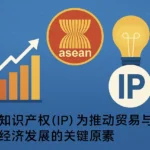By Khin Yupar |
Myanmar is located in Southeast Asia, sharing a 2,416 km (1,501 mi) border with Thailand to the southeast. Thailand, as the second-largest economy in Southeast Asia, excels in production, automobile manufacturing, and tourism, making it an attractive destination for business expansion. This article explores popular business sectors for Myanmar entrepreneurs in Thailand and provides an overview of the Myanmar migrant community. As of April 2023, approximately 2.5 million documented migrants were residing in Thailand, with about 75% of them from Myanmar (June 2023 report from multiple organizations).
Economic Resilience of Thailand
Thailand has made remarkable economic strides, moving from a low-income to an upper middle-income country in less than a generation. The Thai economy, which has experienced moderate growth in recent years, is expected to accelerate, supported by rising private consumption and a strong rebound in tourism. The GDP growth rate for 2023 is projected to reach 3.7%, driven by these factors alongside improving global demand (Deloitte Thailand, 2023; World Bank Thailand Overview).
Employment and Migration Trends
Myanmar migrants are drawn to Thailand for growing employment opportunities. Many move to secure jobs and advance their careers. As a result, some Myanmar businesses have expanded into Thailand to tap into its robust economy and serve the Myanmar expatriate community.
Popular Business Sectors for Myanmar Entrepreneurs in Thailand
Food and Beverage Industry
Myanmar and Thailand share a similar culinary culture. Myanmar restaurants in Thailand capitalize on this shared gastronomic heritage, attracting both Thai locals and foreigners. Notable examples include “YKKO,” a popular Myanmar Chinese-style restaurant, and “FEEL,” known for traditional Myanmar cuisine. With the Thai food market expected to grow significantly, focusing on health-conscious and sustainable offerings could be a profitable venture.
Manufacturing
Many Myanmar manufacturers rely on the Thai market for raw materials such as fabric and cosmetics ingredients. Some Myanmar-based manufacturers have set up factories in Thailand to export products back to Myanmar. Businesses looking to follow this path should ensure compliance with Thailand’s regulatory requirements.
Retail and Wholesale
Myanmar’s rich traditional heritage and textiles offer opportunities for entrepreneurs to open specialty clothing stores in Thailand. These stores cater not only to the local Myanmar community but also to Thai nationals and international tourists interested in unique cultural products.
Tourism
Thailand is a top tourist destination in Southeast Asia. Many Myanmar citizens visit for shopping trips and to participate in cultural and social events. Additionally, Thailand is a popular medical tourism destination for Myanmar nationals.
Legal Considerations for Entrepreneurs
Entrepreneurs must comply with Thailand’s business regulations, especially those concerning intellectual property (IP) rights. Under Thai law, trademarks are protected on a “first to file” basis, meaning ownership is established by registration, not by first use.
Depending on your business, different IP protections may apply. If you would like to learn more about IP protection relevant to your business, we are here to assist. With 25 years of experience in IP, we are ready to help protect your intellectual property rights in Thailand. For further assistance, contact us at kass@kass.asia.








